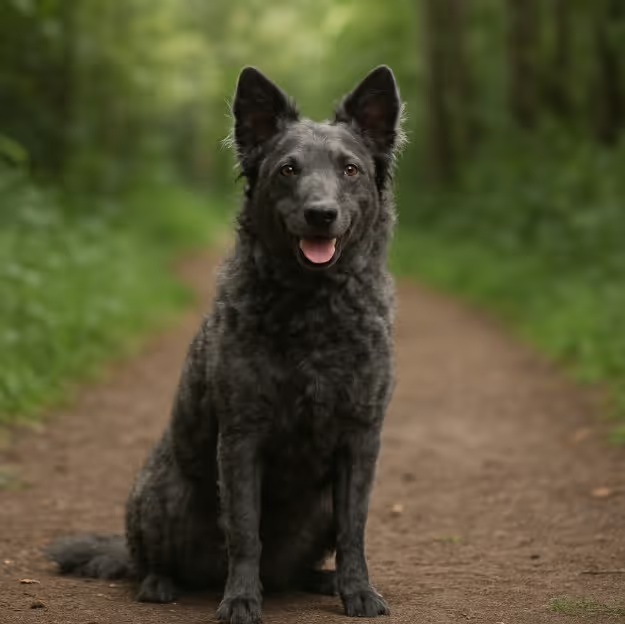The Mudi is a rare, intelligent, and energetic herding breed from Hungary, prized for its versatility, agility, and boundless enthusiasm for work. Known for its curly coat, expressive face, and remarkable adaptability, the Mudi excels in herding, dog sports, and as a loyal family companion. This highly trainable breed thrives in active households that can offer daily mental and physical challenges.

The Mudi developed in Hungary in the 19th century as an all-purpose herding dog, working alongside shepherds to manage flocks of sheep, cattle, and other livestock. Thought to have descended from crosses between the Puli, Pumi, and various herding spitz-type dogs, the Mudi emerged as a distinct breed in the 1930s, thanks to the efforts of Dr. Dezső Fényesi. Though nearly lost during World War II, dedicated breeders revived the breed. Recognized by the Fédération Cynologique Internationale (FCI) in 1966 and by the American Kennel Club in 2022, the Mudi remains rare outside Hungary but is celebrated for its skill, versatility, and loyalty.
A medium-sized, athletic herding dog with a distinctive curly coat and alert expression.
The Mudi’s coat is easy to care for but benefits from regular brushing.
A high-energy breed that needs plenty of activity to stay happy and healthy.
Highly intelligent and eager to please, the Mudi excels with positive, engaging training.
A balanced, nutrient-rich diet fuels their energy and supports joint health.
Generally healthy but prone to a few hereditary issues.
The Mudi is rare, so finding one may require patience and networking.
Are Mudis good family dogs?
Yes, they are affectionate and loyal, but thrive in active households.
Do Mudis get along with other pets?
Generally yes, especially with proper socialization, though they may try to herd other animals.
Do Mudis shed a lot?
They shed moderately, with heavier shedding during seasonal changes.
Are Mudis easy to train?
Yes, they are intelligent, eager learners that respond well to positive training.
Are Mudis good apartment dogs?
They can adapt if exercised well, but prefer homes with space to run.
Do Mudis bark a lot?
They are vocal when alerting or herding, so early training can help manage barking.